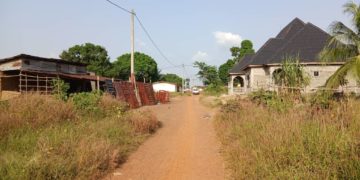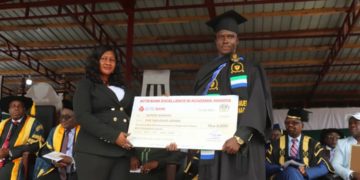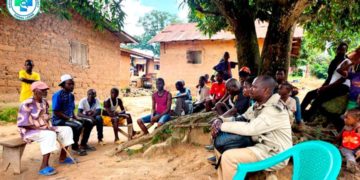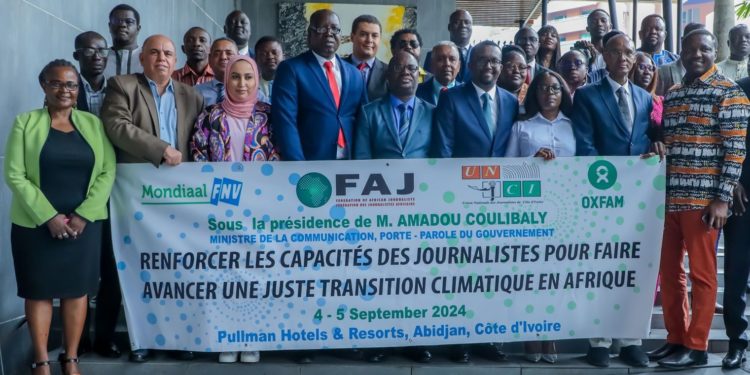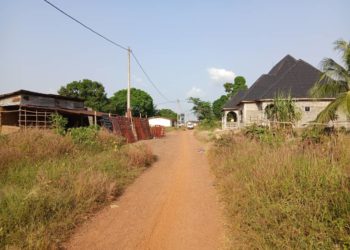By Kemo Cham
African journalists have demanded for a lead role in the continent’s efforts towards attaining climate justice.
The journalists meeting in Abidjan, Cote d’Ivoire last week called for proper recognition and collaboration to amplify the continent’s voice in search for just transition.
At the meeting convened by the umbrella Federation of African Journalists (FAJ), in collaboration with its affiliate, L’ Union Nationale des Journalistes de Côte d’Ivoire (UNJCI), the journalist leaders deliberated on the challenges and opportunities the continent faces in responding to climate change.
The conference held on the theme, “Amplifying African Narratives in Climate Justice: Empowering Journalists to Advance Africa’s Just Transition Realisation”, was part of a bigger continental meeting – the Climate Change and Africa Conference (CCDA-XII) – which was itself meant to position Africa with a single voice ahead of the United Nations Conference of the Parties (COP29) in Baku, Azerbaijan later this year.
The gathering of the media practitioners brought together leaders of journalist unions from 29 countries across the continent’s five regions, reinforcing their critical roles as both media professionals and trade unionists in advancing climate justice and promoting Africa’s just transition.
“The narrative of Africa’s climate crisis must swiftly shift from one of vulnerability and despair to one of resilience, opportunity and leadership,” said Omar Faruk Osman, President of FAJ. He told delegates that African journalists must be armed with the critical tools to lead the transformation and positioning them as central actors in the global climate movement.
“Our journalists are not just amplifying African voices in international platforms—they are demanding decisive action and equity in addressing the continent’s distinct climate challenges,” he stressed.
The Abidjan Climate Change and Africa Conference was the 12th edition of the annual meeting that precedes the global conference on climate change, which offers a platform to discuss efforts to stabilise greenhouse gas concentrations in the atmosphere.
The conference also features the African Ministerial Conference on the Environment.
CCDA-XII was convened on the theme: ‘Financing Climate Adaptation and Resilience in Africa,’ and it focused on the critical issues of climate finance, green growth, climate justice, and regional cooperation.
The meetings come amid reports of flooding and destructions across the continent. In West Africa, Sierra Leone and neighbouring Guinea have been among the most affected by the flooding, which has led to destruction of properties and claiming lives. All of these have been blame on adverse weather conditions.
Climate activists say that it is unfair that the continent faces a disproportionate impact of climate change, even though it contributes less than 4% of global greenhouse gas emissions.
They say that adaptation to these adverse effects is a major concern, and that securing adequate financing is key to ensuring this.
And for this to be realized, the media is crucial, said FAJ in a press release issued at the end of the conference.
“As one of the most vulnerable continents to climate impacts, Africa urgently needs its journalists to take the lead in reshaping public narratives, demanding accountability and driving climate action,” it says.
Media professionals, it notes, are vital in shaping public understanding and narratives around climate change and the need for immediate action, adding that they can also spotlight green job creation and lead the charge in shaping perceptions and influencing policies for a fairer, more sustainable future.
The media’s “influence extends far beyond simply reporting events; you play a critical role in educating the public, shaping perceptions and driving action. You can help communicate the benefits of a just transition, such as job creation, economic resilience and environmental sustainability, while addressing the social impacts on affected communities,” said Coumba Diop of ILO, the co-organizer of the media conference.
The conference culminated in the adoption of the Abidjan Declaration, which calls for enhanced collaboration between journalists, trade unions and civil society to amplify African perspectives in climate discussions.
The Declaration stressed the urgency of advancing the just transition in Africa by advocating for inclusive, low-carbon development strategies that prioritise equitable job creation and sustainable growth. It also highlighted the need for strong accountability mechanisms to ensure governments and corporations uphold their climate commitments.
An Action Plan was also developed, providing a clear roadmap for advancing climate action across the continent.

